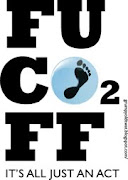And as WUWT points out, it looks exactly the same as it did last winter - actually only 48 weeks ago. All of which makes this March 2000 prediction in The Independent that's been waved around on various blogs all the more - what's the phrase I'm looking for? Oh, yeah - fucking wrong.
Britain's winter ends tomorrow with further indications of a striking environmental change: snow is starting to disappear from our lives.And now they're getting a whole country-load of snow twice in the same year in the latest in a series of consecutive cold winters. Rare and exciting, Dr Viner? Relatives back in the UK are telling me it's becoming a real pain in the arse, not to mention the fact that people are actually fucking freezing to death in these rare and exciting events.
Sledges, snowmen, snowballs and the excitement of waking to find that the stuff has settled outside are all a rapidly diminishing part of Britain's culture, as warmer winters - which scientists are attributing to global climate change - produce not only fewer white Christmases, but fewer white Januaries and Februaries.
The first two months of 2000 were virtually free of significant snowfall in much of lowland Britain, and December brought only moderate snowfall in the South-east. It is the continuation of a trend that has been increasingly visible in the past 15 years: in the south of England, for instance, from 1970 to 1995 snow and sleet fell for an average of 3.7 days, while from 1988 to 1995 the average was 0.7 days. London's last substantial snowfall was in February 1991.
Global warming, the heating of the atmosphere by increased amounts of industrial gases, is now accepted as a reality by the international community. Average temperatures in Britain were nearly 0.6°C higher in the Nineties than in 1960-90, and it is estimated that they will increase by 0.2C every decade over the coming century. Eight of the 10 hottest years on record occurred in the Nineties.
However, the warming is so far manifesting itself more in winters which are less cold than in much hotter summers. According to Dr David Viner, a senior research scientist at the climatic research unit (CRU) of the University of East Anglia,within a few years winter snowfall will become "a very rare and exciting event".
"Children just aren't going to know what snow is," he said.
So although it's obviously retrospective I think this is time to update my list of Warble Gloaming Dates For Your Diary, which is something I haven't done for quite a while. Granted it's not a particularly solid prediction but I think there's enough to work with: children wouldn't know snow "within a few years" of March 2000. The word "few" is generally considered to mean a pretty small number but if 2-3 was meant then "a couple of years" or something similar would probably have been said instead, as would something like "ten or twelve" if something along those lines was meant. So I'm going for the middle and assume "a few years" means 4-6. The updated list now reads:
- Probably should have happened by now - New York's West Side Highway impassable due to being underwater - Dr. James Hansen (1988/89 interview)
- Probably should have happened around 2005 ± 1 yr - British children will not know snow in their own country - Dr David Viner (Independent, Mar 2000)
- "Imminently" - loss of world's coral reefs - David Attenborough ('world’s tropical reefs face ‘imminent destruction’ unless CO2 levels are slashed')
- Late 2013 - ice free Arctic - Al Gore (North Pole will be ice free in five years')
- 2014 - the whole world and everything fucked up beyond repair - WWF.
- Dec 2016 - the whole world and everything all fucked up beyond repair - the Prince of Wails and the 100 months mob
- Dec 2016 - loss of 'the levers of control' for the climate - the Prince of Fails... again.
- Late 2019 - ice free Arctic - Pen Hadow (ten years to Arctic ice loss)
- Late 2019 - the whole world and everything fucked up beyond repair - UK Met Office.
- Late 2029 - loss of Great Barrier Reef - marine scientist Charlie Veron ('global warming will destroy the World Heritage site within just 20 years')
If people weren't dying I might actually laugh.



















